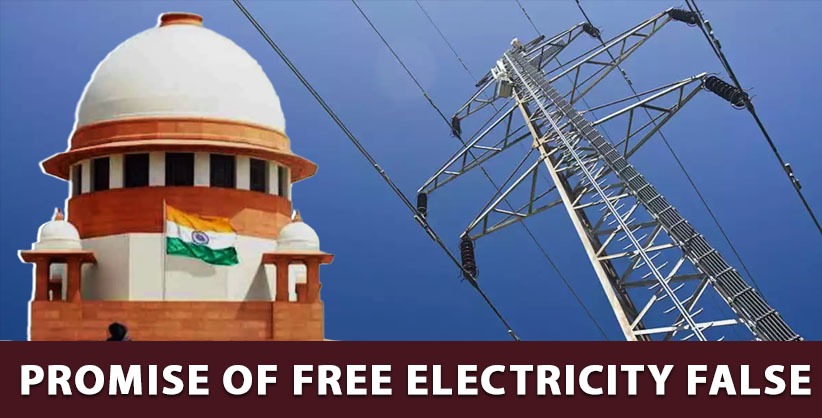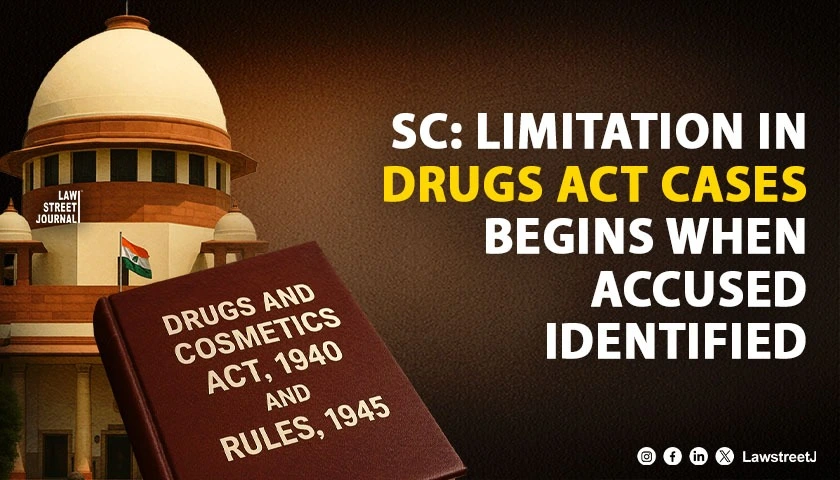NEW DELHI: 'Pahle India Foundation', a policy think tank, established by Dr Rajeev Kumar, the former Vice Chairman of Niti Aayog has filed a plea in the Supreme Court to restrain political parties from promising free electricity during the polls.
It claimed these freebies and populist schemes not only have a continuous adverse impact on the economy and financial health of various States, it also prevents allocation of scarce resources in areas that require essential intervention, like health care, education, internal security and police-reforms, creation of infrastructure, etc. Several state announcing freebies and populist schemes solely based on political considerations, are already burdened with large budget deficits and are financially unsustainable.
The plea said promise of free electricity should be declared null and void as its announcement and the consequential benefit to the electorate is false and misleading.
It also sought a declaration to make it an offence under the Representation of People Act.
The plea also said the political parties should be restrained permanently from issuing manifestos unless cleared by the Election Commission, which has an impact on the finances of the State, directly or indirectly.
The foundation also asked the court to declare that freebie promises should be covered as offence under the penal law for it constituted theft of public money for political purposes.
In an application filed in a pending PIL by advocate Ashwini Kumar Upadhyay to ban freebies, the NGO stated that the state governments should be curbed from encroaching on regulatory domain and deciding tarrif rates.
"The promise of free electricity and the consequential benefit to the electorate is false and misleading. The electorate is not being informed about the serious effect of free power on the economy which has an impact on creation of jobs, public spending in education, healthcare, sanitisation, creation of infrastructure, etc. Since electricity is an economic good, it cannot be "free" in any manner. Someone has to pay for it," the application said.
The application stated the government raises revenue through taxes and other non taxable sources. Finally, the free power has to be paid from such revenues of the government, which as has been seen by various institutional and statutory bodies, is inadequate to pay for the free / subsidised power.
The gap between the cost of supply and the subsidy is growing on a year-to-year basis, which then requires a bailout package which is extremely burdensome on the State's finance. The complete picture is not being given to the electorate. To that extent the gratification that is made out is false and misleading. In any event, it should quality as a corrupt practice as envisaged under Section 123 of the Representation of Peoples Act, 1951, the plea contended.
"It is also corrupt for the reason that the stressed State's finances are being diverted from essential services, which is also not been explained to the electorate. As has been seen, the current bailout for electricity sector is close to Rs 5 Lakh Crores which is more than what the central government spends on health, education, or rural development," the plea pointed out.
The application also stated that the election manifestos to the extent they have economic impact on the State revenues should be specifically vetted and cleared by the office of the Election Commission, who should have experts on the subject to oversee each aspect of the manifesto/ promise which has economic implication.
Apart from violation of the provisions of the Representation of Peoples Act, 1951, the promise of free subsidised power below the cost constituted theft of public money for political purposes. It is an independent offence, the plea claimed.
It also said the majority of distribution companies in India are State owned and therefore become susceptible to political pressures / interventions.
"More importantly, most of the States promising large subsidies to the distribution companies are themselves at fiscal risk with their State Revenue Expenditures exceeding their Revenue Income resulting in high Revenue Deficits. Some States are borrowing to meet their consumption expenditures and high debt servicing burden in adding to their outstanding liabilities. This may result in a debt trap for these States and raising
concern for unsustainable financial situation of the States," it said.
"It is a matter of even bigger concern that many of the State distribution companies do not receive their dues for sale of power from Government Departments but are being promised a subsidy from the State finances. This is a serious governance issues and bad practice of the State Governments," it further claimed.
Citing various reports, the plea also relied upon the RBI's State of Finances article, which stated that the situation is alarming and what has happened in Sri Lanka should raise concerns within India.
"The constitutional machinery in Sri Lanka broke down on account of its economic failures. In order to prevent such breakdown of constitutional machinery, it is necessary that this court exercises its jurisdiction under Article 32 of the Constitution and protects the rights and interests of the citizens," the plea said.







